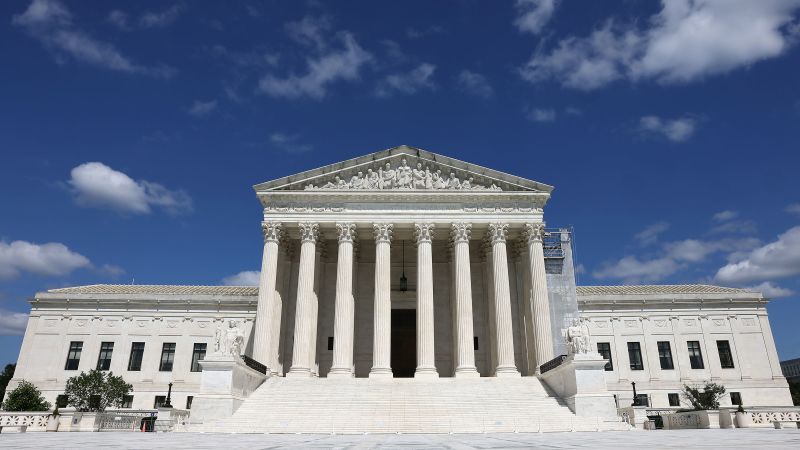The Supreme Court declined to hear several First Amendment appeals on Monday, ditching a case that dealt with a requirement that gun dealers in Maryland display suicide prevention literature and another case regarding anti-Confederate war monument protesters who were arrested for blocking a street.
The guns dispute concerned a Maryland county’s ordinance that requires all firearms or ammunition stores to display literature “relating to gun safety, gun training, suicide prevention, mental health, and conflict resolution.”
Anne Arundel County, outside of Baltimore, enacted the ordinance in 2022 with the goal of reducing gun violence after local officials declared suicide a public health crisis. Initial violations of the ordinance carried heavy civil fines.
The Supreme Court declined to take the series of cases Monday without comment. There were no noted dissents.
A gun rights group in the state challenged the requirement, arguing it unlawfully compelled speech with which they partially disagreed. But lower courts upheld the ordinance, saying that it represented permissible commercial regulation.
“We conclude that this pamphlet, taken as a whole, addresses suicide as a public health and safety concern and advises gun owners on how they can help,” the 4th US Circuit Court of Appeals said in a unanimous ruling in January. “The pamphlet is more in line with other similar safety warnings – widely applicable and accepted – that gun owners should store guns safely, especially to prevent misuse and child access.”
The justices also declined to hear the case of three people who protested a Confederate statue in Gainesville, Texas, who wanted to argue that their arrests violated the Constitution.
Amara Ridge, Torrey Henderson, and Justin Thompson were arrested in 2020 after taking part in the non-violent march. Police said the three were arrested and convicted of obstructing a public highway. The state claims the protesters “repeatedly ignored” directions to remain on the sidewalk.
The protesters, represented by the American Civil Liberties Union, say they deviated from the sidewalk only briefly, once for a “water hazard” and then at the very end of the march to return to the courthouse lawn. They say the arrests violated the First and 14th Amendments.
The case was on appeal from Texas courts, which sided with the state.
The court on Monday also declined to decide the politically charged issue of campaign finance regulation by sidestepping a challenge to laws in San Francisco that require greater disclosure of political donors in campaign ads.
The laws, approved by voters in a 2019 ballot initiative, require some political ads to identify secondary donors – such as the top donors to political committees.
The requirement is intended to ensure that people viewing a political ad know who is actually funding it. But critics say the requirement is so onerous that it makes political advertising impossible because of all the information that must be displayed.
A political committee in the city and several others sued to block the laws, but lower courts ruled against them. The petitioners had asked the high court to decide whether the requirements are an “intrusion into core First Amendment political campaign speech.”
Read the full article here
